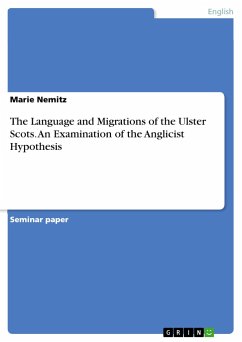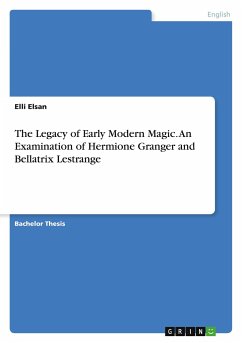Seminar paper from the year 2014 in the subject English Language and Literature Studies - Linguistics, grade: -, Bielefeld University, course: Modulabschlussarbeit, language: English, abstract: There are several theories on how African American Vernacular English (AAVE) may have come into existence, however the creolist hypothesis has been the most prominent one. It states that AAVE is based on a creole and was brought to the United States by slaves from West Africa or the West Indies. However, the oppositional theory, called the Anglicist or dialectologist hypothesis, considers AAVE to be influenced by traditional English dialects. Most important seems to be the influence of the Scots-Irish from northern Ireland. As they make up the largest group of settlers in the American colonies in the 18th century their language must have had an enormous impact on the emergence of several American English dialects, and probably also on AAVE. This would claim AAVE to be an English dialect aswell, influenced by the features of Southern American English. But this is a subject of controversial debate. Some linguists are of the opinion that the Southern American accent was actually influenced by the language of African Americans. Still, there are several linguistic features of the Scots-Irish' language that can also be found in the United States, especially in the Appalachian and Southern dialect; and it is a "[...] fact that in the New World, i.e. in the United States as well as in the Caribbean, black slaves had extensive contact with people from Ireland" (Ewers, 1995). Thus it is also possible that the American English varieties, primarily the southern one, could have had an impact on AAVE.
Bitte wählen Sie Ihr Anliegen aus.
Rechnungen
Retourenschein anfordern
Bestellstatus
Storno








